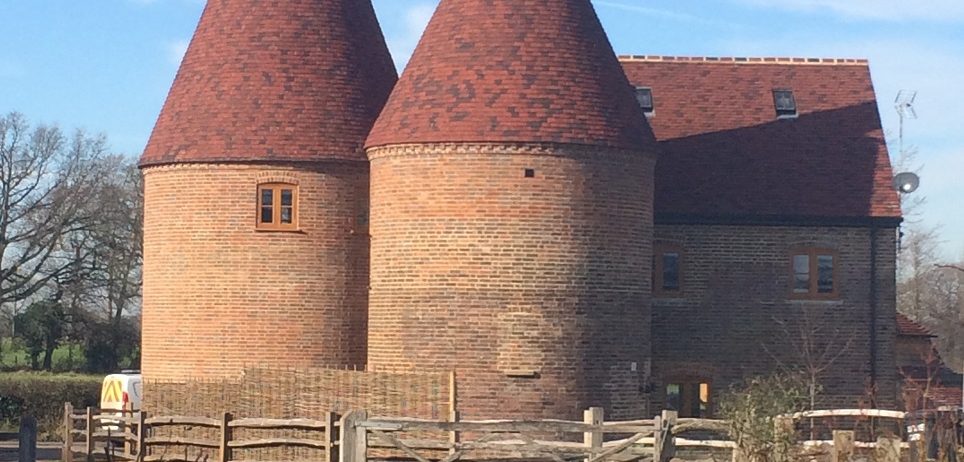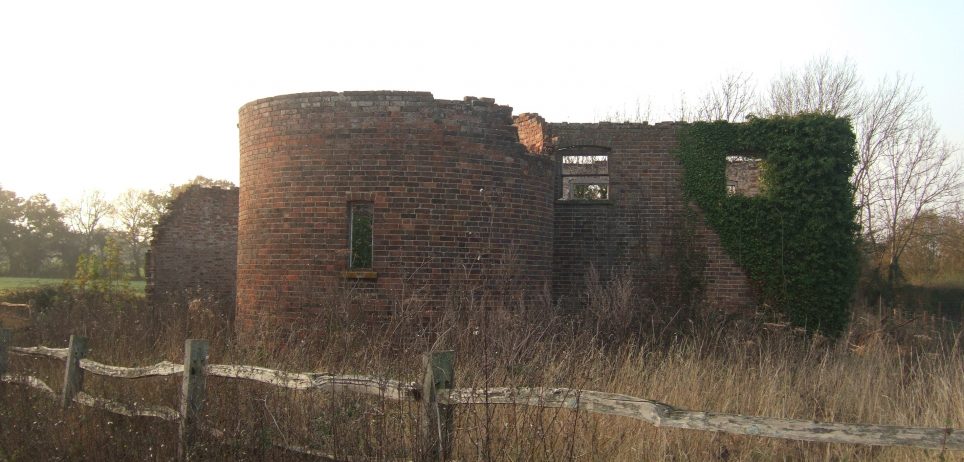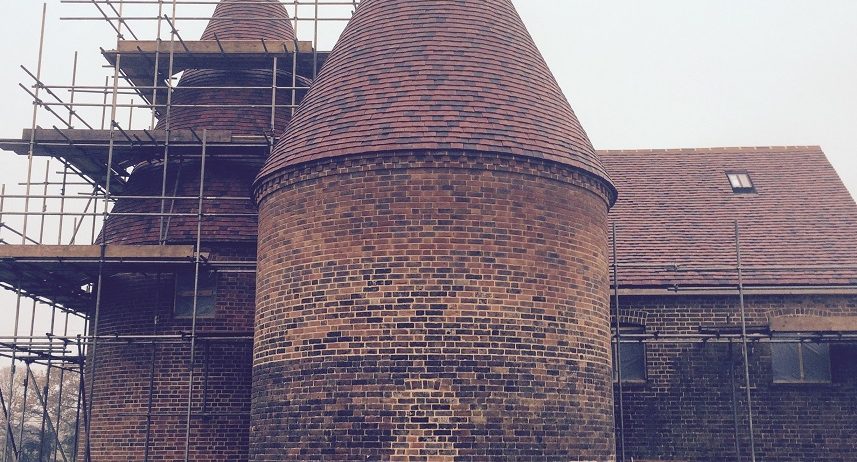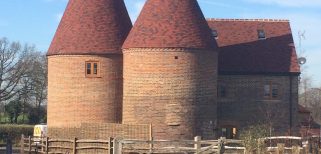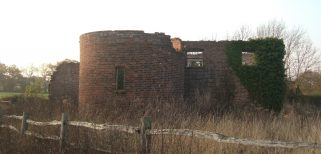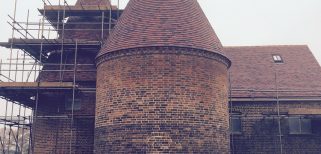Restoration, South East
- Project Restoration, South East
- Sector Residential
- Location South East
- Tile Product Clay Handmade Tile
- RTA Member Tudor Roof Tile Co Ltd
Challenge
Dating from the nineteenth century, the buildings had originally consisted of a rectangular two-storey 9.6m x 6.6m brick barn with two different sized circular kilns, for drying hops grown in the area.However, as they had not been used for many years, the buildings had fallen into disrepair and then suffered massive damage during the storms of 1987.
With the roofs completely destroyed, half of the brickwork on the larger south kiln missing and the brick walls and top courses on the barn and east kiln incomplete, there was a real danger that the remaining structure would collapse and ultimately be lost.
Solution
As the oast was curtilage listed, the new structure could not be enlarged beyond the footprint or envelope of the remaining buildings. Significant rebuilding work was undertaken using a mixture of traditional and modern materials in order to respect and complement local historic building methods rather than exactly replicate the original structure.The new roofs were completely rebuilt and tiled with traditional clay Kent Peg tiles, which were manufactured by Tudor Roof Tiles to complement those on the adjacent buildings within the farm complex and a nearby converted barn. These were installed in a traditional mix of 75% red antique and 25% dark antique.
